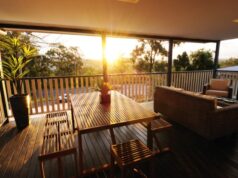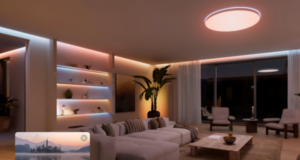
Different sorts of insulation vary in terms of how effective they are at controlling heat and sound, how they can be installed and how much they cost. Find out what’s right for your home.

There are many difference choices when it comes to choosing insulation for your home. Choosing the right option will depend as much on your location and situation as it will on your budget, your need for soundproofing, the temperature where you live and whether or not you’re building anew or renovating. Below are a few of the questions you’ll need to be able to answer.
New build or renovation?
If you’re considering insulation for a home you intend to build, then your options are wide open and you can accommodate any type of insulation you want, provided that it meets the requirements set out in the National Construction Code (NCC).
Adding insulation to an already built home can be more tricky, since many of the cavities that will normally house your insulation have already been sealed off. Getting the insulation into the right spots without ripping out all of your walls can be achieved by drilling holes in walls, and then blowing insulation into the wall cavity. This isn’t appropriate or possible in all circumstances though.
What is your home made of?
The construction materials you use will determine how much thermal mass you’re dealing with. Thermal mass is important, especially with very dense building materials like concrete and brick. These materials can store heat, releasing it long after the surrounding temperature has dropped. Other aspects of your home, like whether you’re using double glazing in your windows, can also contribute to how you’re able to regulate the temperature inside your house, and how much heat is allowed in.
Where are you building?
The type of climate you’re in will determine whether you want insulation that’s designed to keep heat in, to keep it out, or to strike a balance between the two. Australia is broken up into a number of climate zones, and understanding what’s required in your zone will help you prioritise one or the other, and will partially determine the R-value you’ll need to meet. As an example, in hot climates up north, correctly installed reflective insulation is favoured over bulk insulation like glasswool or mineral wool as it prevents ratiative heat from the roof entering living spaces during the day. Bulk insulation is increasingly important in northern climates though, mainly bcause far more people are now using air conditioning, which create much bigger temperature differentials between the outside and the inside of houses.
What R-value do I need to achieve?
For all new homes, the BCA will have a minimum requirement for you to meet. The overall R-value of your home is determined by a wide variety of factors so you will need to have this privately assessed and make improvements if your plans fall short of the required value. It is recommended though to exceed the minimum requirements as the rising cost of energy will only increase your heating and cooling bills. This is also a good reason to retrofit a home which might not have insulation or the existing insulation is failing. This can be a more expensive operation though so plan wisely.
Do you need soundproofing?
If you live near a major highway, railroad or any area with a lot of latent background noise, you might want to think about including soundproofing in your plans. Other areas of your home that you may want to seclude such as home theatres are also good candidates for sound insulation. How much of it and what type you’ll need will depend on the level and frequency of the noise you want to isolate. Most thermal insulation already provides a certain amount of soundproofing, but if it’s a particular concern then you’ll need to choose carefully.





